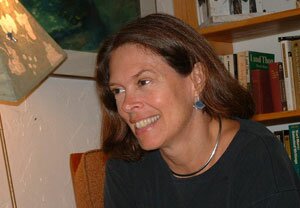FACETIME- Coastal crusader: DeBlieu's change begins at home

Jan DeBlieu
PHOTO COURTESY JAN DEBLIEU
In 1988, Mobil Oil threatened to drill off the coast of North Carolina's Cape Hatteras, with pollution, the destruction of wetlands, and the industrialization of the coast being the very likely result, says author Jan DeBlieu.
Not if DeBlieu had anything to do with it.
When she first moved to the Outer Banks in 1985, she didn't plan on settling there– mainly just "writing about nature and natural systems," the focus of her books, including Wind and Hatteras Journal.
But the islands enchanted her.
"It was like I found my home," says DeBlieu, emphasizing that last word. "It's a place that I fit very, very well."
When faced with Mobil's impending drilling, DeBlieu joined forces with an activist group, LegaSea, lobbying fiercely to keep them out. "The Outer Banks communities closed ranks against the oil companies," she relates. "We had traditional environmentalists joining forces with real estate brokers and tourist boosters."
In 2000, LegaSea was victorious: the oil companies gave up all of their Outer Banks leases.
"It took a lot of people and a lot of time and sweat and blood to keep the ocean natural and pristine," DeBlieu says. "I mark that as a pretty significant accomplishment."
Activism– environmental or otherwise– has figured prominently in DeBlieu's life. She spoke out about depression in her book Year of the Comets, and recently helped found a homeless shelter.
But first and foremost, "I've always been a writer," she says. Writing fiction was her original focus, but as a reporter she "found the true stories I encountered more interesting than anything I could make up in my head," she recalls.
Around 1985, nature began deeply fascinating her. "Specifically," she explains, "in the way people interact with their landscapes."
Since 2003, DeBlieu, now 53, has worked as the Cape Hatteras Coastkeeper for the North Carolina Coastal Federation, where she strives to build unlikely alliances with the traditional farmers and fishermen of this very conservative region.
"I believe strongly that environmentalists need to engage everyone– not just political liberals– in our fight to preserve the natural world," she says. "This is especially true here on the coast, where sea level rise threatens the very ground on which we walk."
And engage she does. Wind won her the 1999 John Burroughs Medal for Distinguished Natural History Writing, the highest national award presented for nature writing.
"Jan has the fire of an activist," says Derb Carter, director of the Chapel Hill, North Carolina, chapter of the Southern Environmental Law Center, "and a deep knowledge of nature and mastery of the power of the written word. That is a unique combination in an individual."
Jan DeBlieu's March 21 visit is canceled because of the death of her son, Thomas Reid Smith DeBlieu, in a car accident March 16.
#